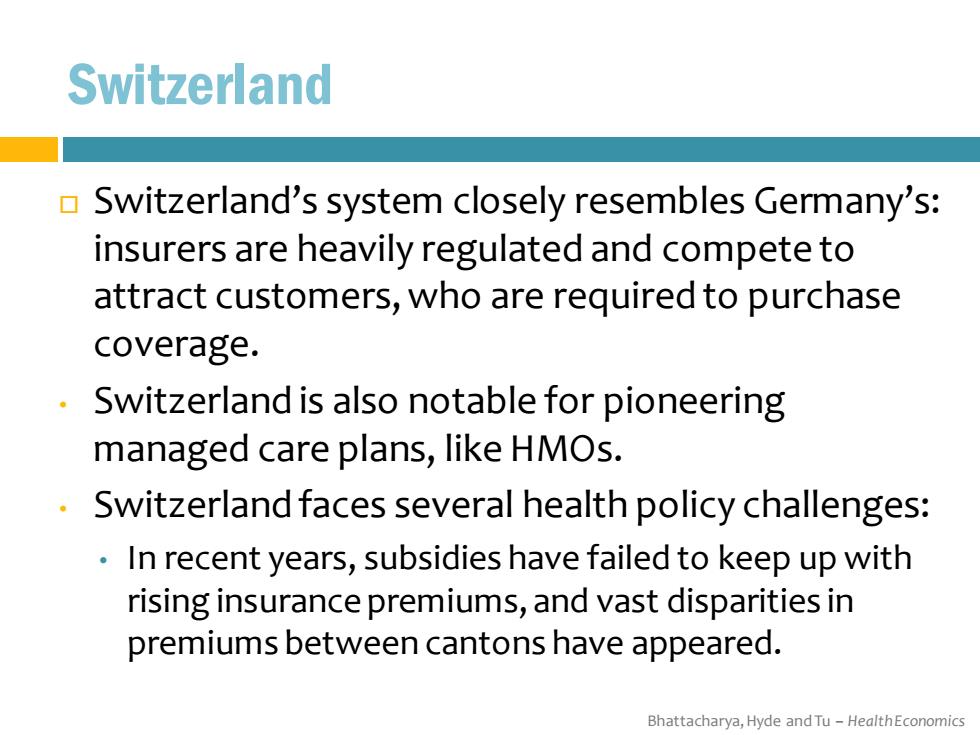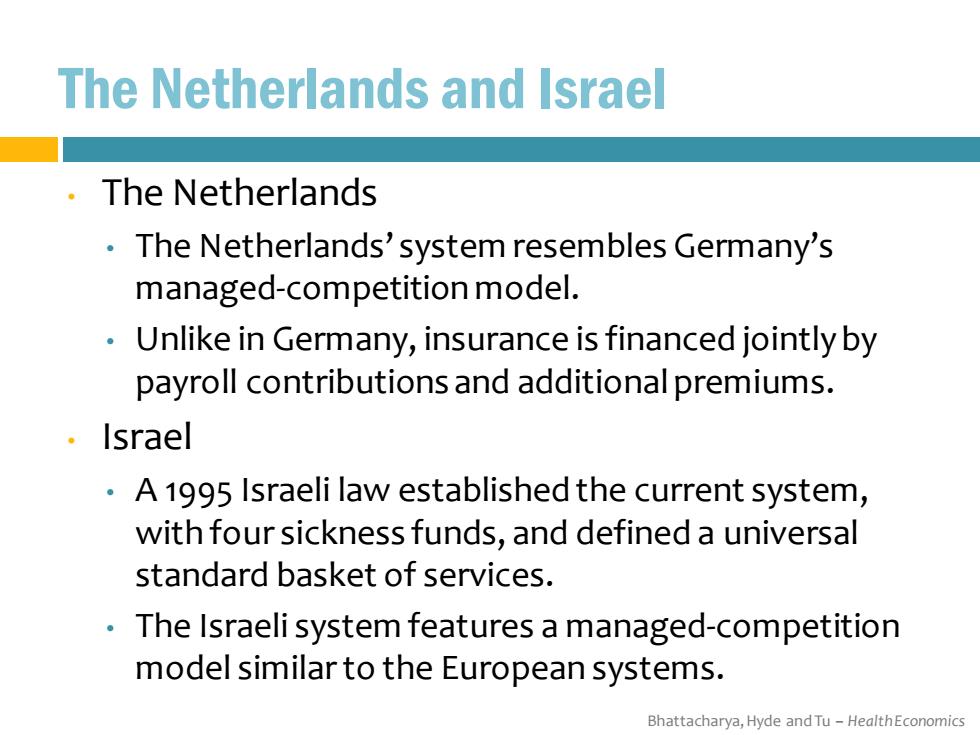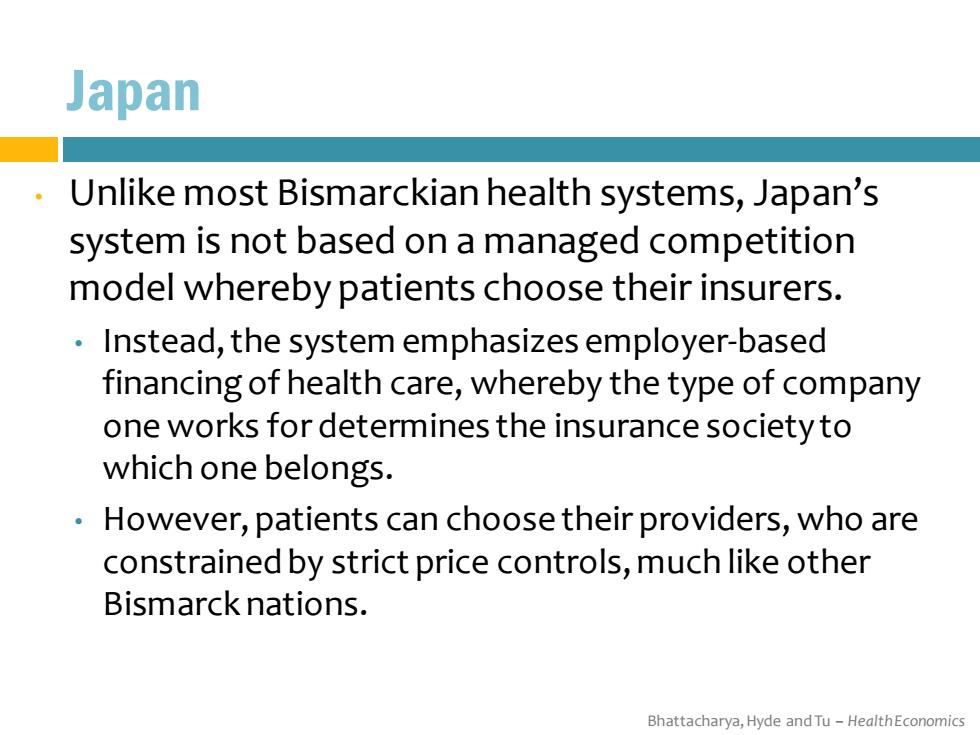
Switzerland Switzerland's system closely resembles Germany's: insurers are heavily regulated and compete to attract customers,who are required to purchase coverage. Switzerland is also notable for pioneering managed care plans,like HMOs. Switzerland faces several health policy challenges: In recent years,subsidies have failed to keep up with rising insurance premiums,and vast disparities in premiums between cantons have appeared. Bhattacharya,Hyde and Tu-HealthEconomics
Bhattacharya, Hyde and Tu – Health Economics Switzerland Switzerland’s system closely resembles Germany’s: insurers are heavily regulated and compete to attract customers, who are required to purchase coverage. • Switzerland is also notable for pioneering managed care plans, like HMOs. • Switzerland faces several health policy challenges: • In recent years, subsidies have failed to keep up with rising insurance premiums, and vast disparities in premiums between cantons have appeared

The Netherlands and Israel The Netherlands The Netherlands'system resembles Germany's managed-competition model. Unlike in Germany,insurance is financed jointly by payroll contributions and additional premiums. Israel A 1995 Israeli law established the current system, with four sickness funds,and defined a universal standard basket of services. The Israeli system features a managed-competition model similar to the European systems. Bhattacharya,Hyde and Tu-HealthEconomics
Bhattacharya, Hyde and Tu – Health Economics The Netherlands and Israel • The Netherlands • The Netherlands’ system resembles Germany’s managed-competition model. • Unlike in Germany, insurance is financed jointly by payroll contributions and additional premiums. • Israel • A 1995 Israeli law established the current system, with four sickness funds, and defined a universal standard basket of services. • The Israeli system features a managed-competition model similar to the European systems

Japan Unlike most Bismarckian health systems,Japan's system is not based on a managed competition model whereby patients choose their insurers. Instead,the system emphasizes employer-based financing of health care,whereby the type of company one works for determines the insurance society to which one belongs. However,patients can choose their providers,who are constrained by strict price controls,much like other Bismarck nations. Bhattacharya,Hyde and Tu-HealthEconomics
Bhattacharya, Hyde and Tu – Health Economics Japan • Unlike most Bismarckian health systems, Japan’s system is not based on a managed competition model whereby patients choose their insurers. • Instead, the system emphasizes employer-based financing of health care, whereby the type of company one works for determines the insurance society to which one belongs. • However, patients can choose their providers, who are constrained by strict price controls, much like other Bismarck nations